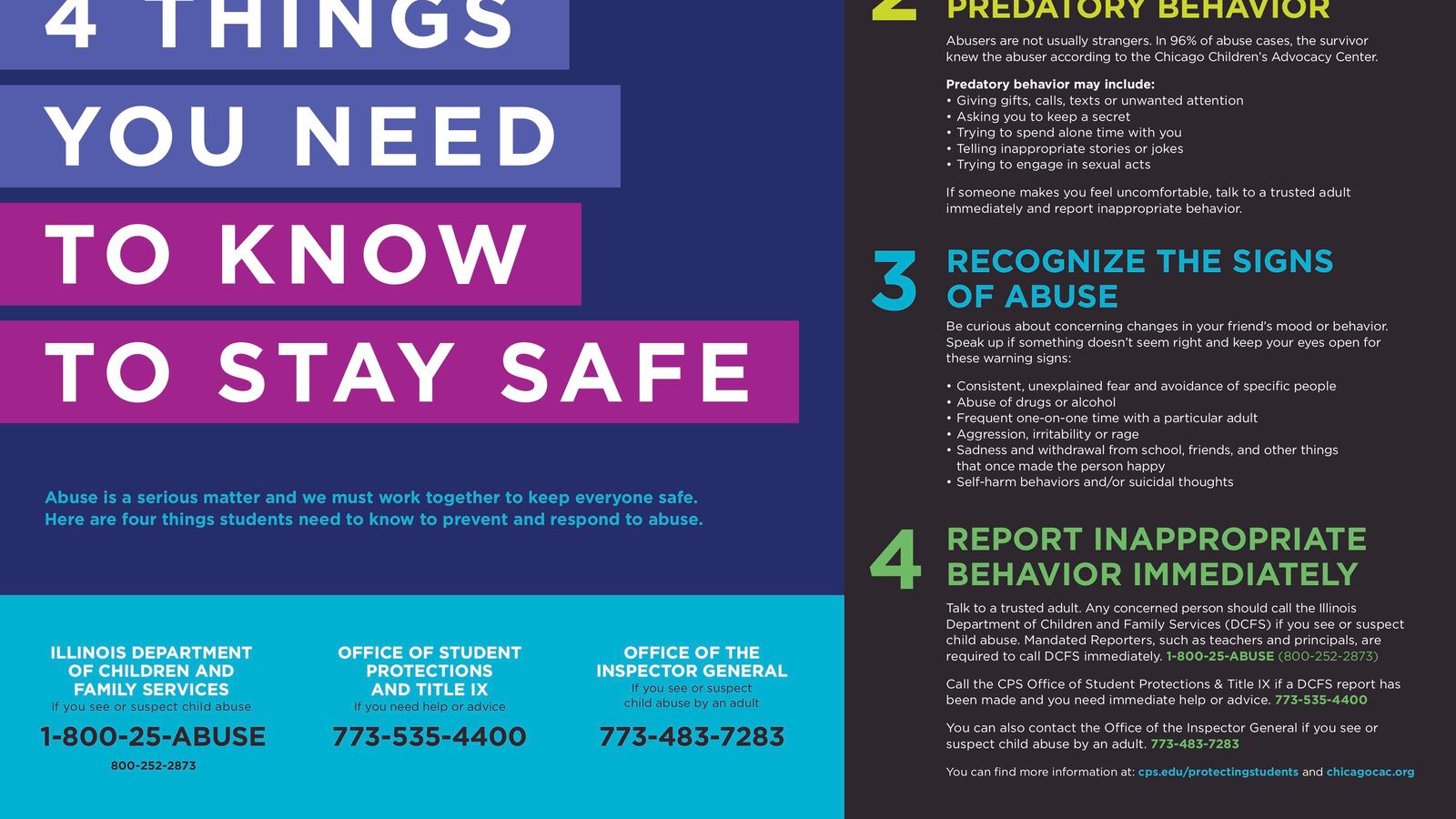In a little over four months, Chicago students have reported more than 900 cases of alleged sexual misconduct — an unprecedented number — in response to a sweeping campaign designed to improve school district handling of complaints.
The vast majority of the complaints reported students misconduct against other students.
In response to a Chicago Tribune series that exposed widespread flaws in how the district handled sexual abuse allegations back to 2000, Chicago Public Schools scrambled to better respond to allegations against teachers and other adults, and the report on Wednesday said the district has removed 33 adults from schools this school year as a result of new investigations.
But the numbers shared Wednesday with the Chicago school board quantify another problem the district is facing: student-on-student complaints, ranging from inappropriate touching, sexting and harassment to more violent physical encounters.
Of the 932 cases reported since the start of school, 82 percent involved student complaints against other students, and some of them happened outside of school. The remaining cases involved adults — but only half of those were complaints against educators and others who work in schools. The rest were made against a student’s family member or other adults who have contact with children at home.
“With an increased education campaign and more awareness, victims feel more comfortable coming forward because they have more confidence that something will actually be done,” said schools chief Janice Jackson, of the new numbers. “Nothing is more important than creating a safe environment and protecting our children.”
Speaking later, teachers union President Jesse Sharkey was more pointed. “Adult misconduct is surely not acceptable,” he said, “but, holy crap, we have a lot of work to do in terms of student behavior against other students.”
Roughly half of all complaints came from students in the city’s K-8 schools; the other half were from high schools.
Just over 200 of those cases have been reviewed or closed, and 375 were in process, said Douglas Henning, a Chicago schools lawyer who is serving as interim Office of Student Protections and Title IX chief until the district hires a director. The rest are awaiting review.
After the Tribune series published, schools chief Janice Jackson acted quickly to address complaints against adults. She hired former federal prosecutor Maggie Hickey to investigate and recommend how the district should respond. And she handed power to review student allegations against teachers, coaches, and other adults to Chicago’s inspector general for schools, Nicholas Schuler.
Jackson also created a Title IX office, run by Henning, to handle student complaints of misconduct by other students and by adults who don’t work in schools.
Sequoia Williams, a parent of a kindergartener and a second grader at James R. Doolittle Elementary near the Bronzeville neighborhood, told the board that she had filed complaints about inappropriate touching and bullying at the school among students, and was still waiting on resolution.
“We need help,” she said. “These kids are not safe.”
Speaking after the board meeting, she said she complained to the Title IX office first, but was told that a principal had to make a report. After another round of calls and emails, including to the Department of Children and Family Services and Chicago’s inspector general for schools, she received a letter from the Title IX office that her case was under investigation.
In his report to the board Wednesday, Schuler said his office had fielded 136 complaints against adults since October, reflecting that “a culture change has begun.”
“People are reporting more regularly,” he said.
In those cases, 33 adults have been pulled from schools pending investigation. Of those, 12 were teachers and eight were security guards; the rest were vendors, bus drivers or aides, plus a coach, a lunchroom mentor, a custodian, and a special education assistant.
Schuler’s report to Chicago’s school board also laid bare another challenge: inconsistency in how charter schools report alleged abuse of students.
“We do have cases from charters,” Schuler said, “but my gut feeling is they seem underrepresented. I want to make sure we have a handle on that and that the same awareness campaign has reached the charter schools.”
He also expressed concern that charters don’t use the same reporting system to centrally log disciplinary actions as district-run schools.
Henning, chief of the student protections office, said that his office is training a teacher at each school to serve as a Title IX liaison to report suspected abuse. But charter teachers haven’t been trained.
The district’s general counsel, Joseph Moriarty, said the district is addressing some concerns about charter compliance when it renews the schools’ charters. The board voted Wednesday in favor of renewing several charter contracts, including the city’s largest network, Noble Schools.
“As part of all our charter contract renewals, we are asking schools to notify CPS when they have issues involving sexual abuse or key personnel so the district can exercise appropriate oversight,” Moriarty said.
The district told Chalkbeat it would disclose other conditions on the charter schools once it sent out official charter renewals in February.

